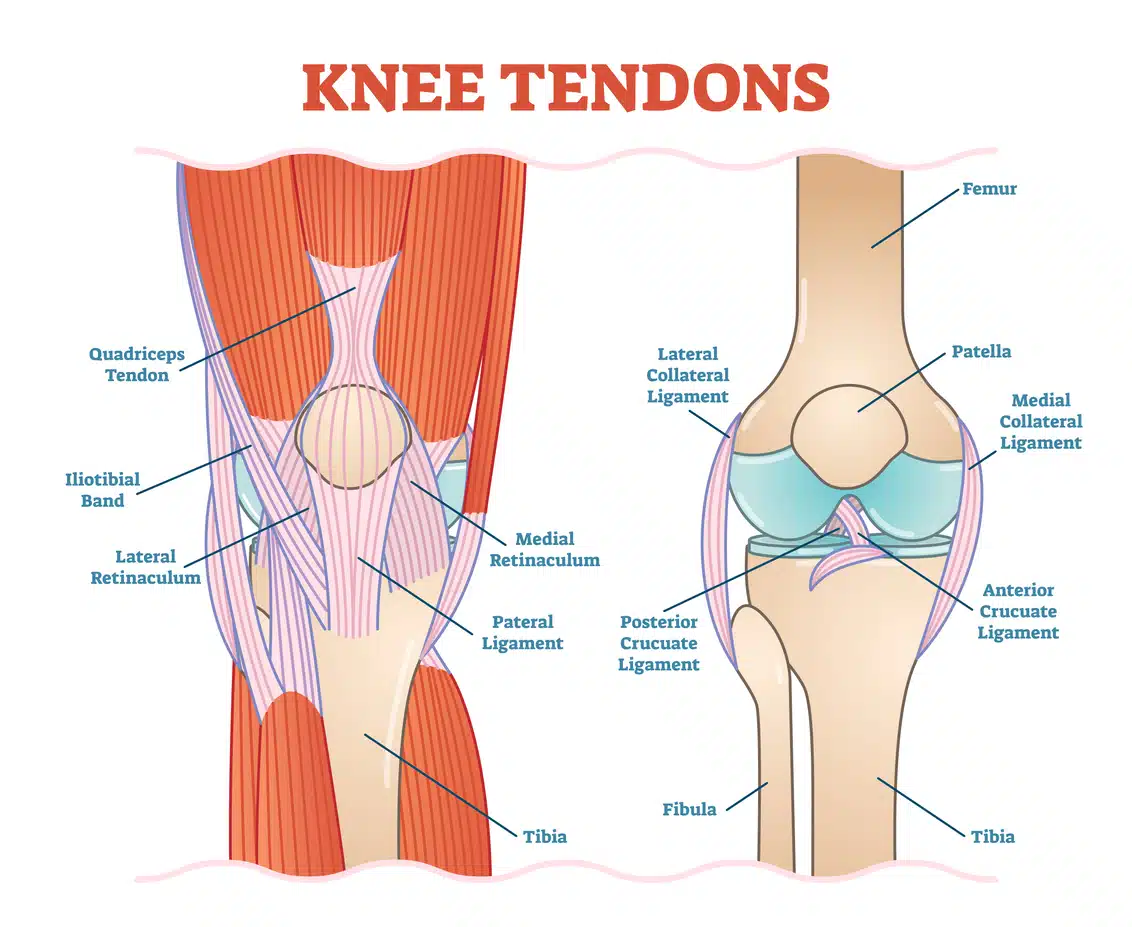
Knee tendonitis or jumper’s knee is when the tendon of the knee that connects your kneecap(patella) to the top of your shinbone(tibia), gets inflamed and becomes painful.
Repetitive movements of your knee joint, as in some sports, like basketball and volleyball,that involve jumping, can irritate the knee tendon, leading to knee tendonitis. This means athletes who play such sports are at high risk of having knee tendonitis, giving knee tendonitis another name, i.e., jumper’s knee.
Knee tendonitis is a painful condition with the symptoms like redness and swelling that can limit your daily routine tasks.
Let’s talk about some tips for managing and treating tendonitis in the knee and where you can go for the treatment of knee tendonitis in Bismarck, ND.
Tip#1 Rest, Rest, and Rest
Knee tendonitis goes away on its own with lots of rest, so try to take some break from your activities and give your knee tendon a good amount of time to heal.
Tip #2 Apply Ice
In addition, if you have swelling, apply ice on swollen knee joints for 15 minutes a few times a day, as ice can relieve swelling and inflammation. Do not apply ice directly on your skin, instead wrap it in a towel to avoid frostbite.
Tip#3 Support Your Knee
To mitigate the pain in your knee joint, try knee support such as knee braces which will distribute force away from your swollen tendon, leading to reduced swelling, and ultimately, pain.
Tip#4 Take Some Pain Relievers
Try some over-the-counter oral painkillers,such as ibuprofen (Advil) or naproxen sodium (Aleve). These medications belong to a class of drugs, i.e., non steroidal anti-inflammatory drugs (NSAIDs) that can ease the pain as well as reduce inflammation related to knee tendonitis.
Tip #4 Look Out for Cortisone Shots
Even after taking oral medications, visit an orthopedic doctor if your knee pain persists. Your orthopedic doctor may prescribe you steroidal shots.
Due to their strong anti-inflammatory effect, steroids, when injected around the tendon of the knee, rapidly relieve pain and swelling of the inflamed knee joint.
Tip #5 Try Physical Therapy
Your orthopedic doctor may also refer you to a physiotherapist who may teach you some stretching and strengthening exercises to ease knee tendonitis symptoms.
Your physical therapist may also perform iontophoresis, in which your physical therapist spreads corticosteroid medicine on your skin and then places a device on it that produces a low electrical charge to push the steroidal medicine through your skin.
Tip#6 Ask About Surgery
Although surgery for knee tendonitis is rare, talk to your orthopedic doctor about surgery if your knee tendonitis is not getting better with noninvasive treatment options and if there is a tendon tear. During the surgery, your orthopedic will repair the torn tendon of your knee joint.
Knee Tendonitis Treatment in Bismarck, ND
Do you haveknee pain that affects your athletic performance or ability to do physical tasks? See our best orthopedic doctors at The Bone & Joint Center. Our board-certified orthopedic doctors have expertise in diagnosing, preventing, and treating all bone and joint-related problems, especially knee joint problems. We offer noninvasive and surgical methods to treat your orthopedic issues and provide lasting relief.
Want to make an appointment with one of our best orthopedic doctors? Call us today at (701) 946-7500 or fill out our online request form.

